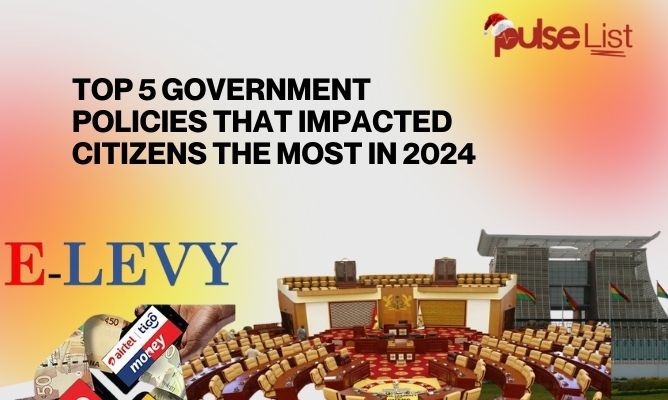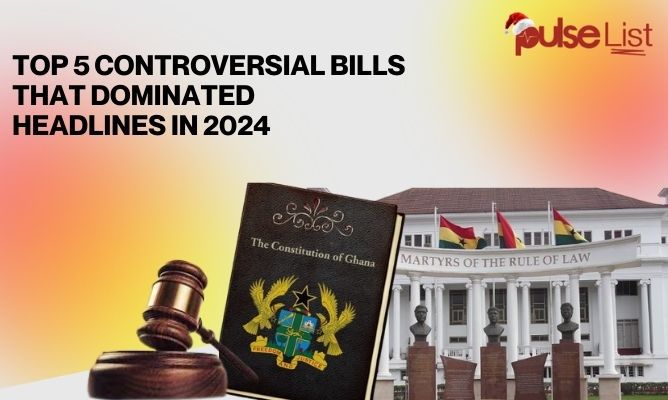
The year 2024 marked a transformative period for Ghana, as the government rolled out key policies aimed at driving economic growth, enhancing social equity, and improving public welfare. From reforms in education and healthcare to bold steps in economic stabilisation and gender equality, these policies shaped the lives of millions of Ghanaians. In this article, we explore the top five government policies that had the most significant impact on citizens in 2024, highlighting their goals, implementation, and outcomes.
Passport Application Fees
One of the most notable policies that affected Ghanaians in 2024 was the increment of passport application fees. Effective 1 April, the Ministry of Foreign Affairs announced a 400% increase in the application fees for passport services, from GHC100 to GHC500 for a 32-page standard passport, and GHC644 for a 48-page standard booklet. Similarly, applicants opting for the 32-page expedited service were required to pay GHC700, while those choosing the 48-page expedited service had to pay GHC800. The new fees were contained in the Ministry’s 2024 budget estimates, which had been approved by Parliament’s Subsidiary Legislation Committee. This increase was heavily criticised by a section of the public, however, the Ministry put up a spirited defence of the decision.
One Student, One Tablet Initiative
On 25 March, President Nana Akufo-Addo launched the much-anticipated One Student, One Tablet initiative. Under this programme, the government aimed to distribute 1.3 million tablets, mainly to senior high school students, as part of its goal of leveraging technological advancements to prepare Ghanaian students for the Fourth Industrial Revolution. The initiative was heavily debated among stakeholders in the education sector.
E-Levy
Despite its controversial passage in 2022, the Electronic Transactions Levy (E-Levy) remained one of the major policies that significantly impacted Ghanaians in 2024. The tax imposes a 1.5% charge on all electronic transactions exceeding GH?100 daily. This year, the move continued to face widespread opposition and protests, with critics labelling it regressive and burdensome for Ghanaians.
Betting Tax
Also in 2024, the betting tax continued to be a major talking point, especially in the run-up to the general election. Many called for its removal, but the 10% tax on sports betting winnings, which was passed in August 2023, remained in effect. The Ghana Revenue Authority introduced a 10% withholding tax on lottery and sports betting winnings, which was met with significant backlash from young Ghanaians, who criticised the government for imposing unnecessary financial strain. Both measures alienated large segments of voters, particularly the youth, who felt their economic aspirations were being compromised.
COVID Tax
Despite its passage in March 2021, the COVID-19 Levy continued to be a major talking point for the business community and the general Ghanaian citizenry in 2024. The COVID-19 Health Recovery Levy Act, 2021 (Act 1068) imposes a 1% levy on the gross value of taxable supplies of goods and services. This was one of several taxes many Ghanaians demanded be scrapped by the government.
Read Full Story






















Facebook
Twitter
Pinterest
Instagram
Google+
YouTube
LinkedIn
RSS